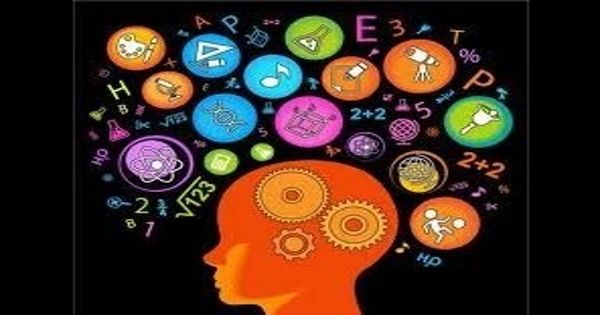Economics was originally introduced as a science of statecraft. It was concerned with the collection of revenue for the state i.e., government. Advisors to the government were also required to point out the best possible way of spending the revenue. The growth of trade, industry and commerce after industrial revolution in the eighteenth century required that the functions of the state should be specified. Political economy emerged as the result of the efforts to define functions of the state. Wealth was identified as the source and means to satisfy our various wants, so wealth was emphasized. Adam Smith, generally known as the father of Economics defined Economics as ‘science of wealth’.
What economics is all about?
The concept of Economics has been changing during different stages of developing Economics as subject. Let us discuss these stages.
Stages of Developing Economics as a Subject
Economics as a subject has developed in the following stages:
1. Wealth concept
2. Welfare concept
3. Scarcity concept
4. Development concept
1. Wealth Concept
During the eighteenth and the early part of nineteenth century, classical economists, such as Adam Smith, J.B. Say and Walkar defined Economics as the science of wealth. Adam Smith systematized the concept in the form the book which was entitled as ‘‘An enquiry into the nature and cause of the wealth of nations.’’ These economists stated that Economics is related to and concerned with wealth.
Excessive emphasis on wealth enabled the businessmen and industrialists to amass wealth by any means, whether fair or foul. Social reformers like Thomas, Carlyle, John Ruskin, Charles Dickens and William Morris reacted sharply to the wealth concept of Economics. They branded Economics as a dismal science, gospel of Mammon and science of bread and butter etc.
2. Welfare Concept
According to this concept, Economics is not the science of wealth but it is concerned with human welfare. It studies and emphasizes wealth as a means of satisfying human wants, not as an end of human activities. Marshall was the pioneer of welfare thought. According to him, ‘‘Political Economy or Economics is the study of mankind in the ordinary business of life….. Thus it is on the one side a study of wealth and on the other, and more important side a part of the study of man.’’ The important features of this welfare concept are as below :
(i) Economics is the science of human welfare.
(ii) Economics is the study of mankind in the ordinary business of life.
(iii) Economics is a social science.
(iv) Economics is the study of only economic activities.
3. Scarcity Concept
The proponent of this concept was ‘Lionel Robbins’. According to him, ‘‘Economics is the science, which studies human behaviors as a relationship between ends and scarce means which have alternative uses.’’ The important features of this concept are:
(i) Economics is a positive science.
(ii) Economics is the study of human behavior.
(iii) Our wants are unlimited.
(iv) Our resources are limited/scarce.
(v) Resources can be put to alternative uses.
According to this approach certain universal truth are regarded as the basis of economic problems. Every individual and economy has unlimited wants and scarce means to satisfy these wants. Inability to satisfy unlimited wants with limited resources creates the problems of choice making i.e., fixing priority of wants to be satisfied. As resources can be put to alternative uses, we will have to take decision as to which specific want should be satisfied with particular means. In this way, choice making or decision making is the means of tackling all these economic problems.
4. Development Concept
Scarcity concept explains the presence of economic problems. It is concerned with the positive aspect of the subject. Modern economists feel that economist should also suggest how the scarce means should be further increased to satisfy more wants and attain good living. The originator of this concept is Professor Samuelson, who presented the growth-oriented definition of Economics. According to him, ‘‘Economics is the study of how man and society choose, with or without the use of money to employ scarce productive resources, which could have alternative uses, to produce various commodities over time and distribute them for consumption now and in the future among various people and groups of society. The important features of this concept may be summarized as follows:
(i) Problem of choice making arises due to unlimited wants and scarce means. We have to decide which wants are to be satisfied and which of them are to be deferred.
(ii) Wants have tendency to increase in the modern dynamic economic system, so the available resources should be judiciously used. Best possible efforts should also be made to increase the resources, so that increasing wants can be satisfied.
(iii) Economics is not concerned with the identification of economic problems but it should also suggest ways and means to solve the problems of unemployment, production, inflation etc.
(iv) Economists should also suggest how the resources of the economy should be distributed among various individuals and groups.
(v) Economists should also point out the plus and minus points of different economic systems.
ECONOMICS AS SCIENCE
Science is the systematized body of knowledge which creates relationship between causes and their effects. In other words, every discipline which has got certain theories, concept and laws showing the relationship between causes and their effects is science. Economics has got its own theories, concepts and laws, so it is definitely a science though not an exact science, like Physics and Chemistry. Science is classified as follows:
Positive Sciences: It deals with the actual happenings. It presents the real picture of facts without any comments and suggestions. Economics also deals with the positive issues, so it is a positive science.
Positive issues/Examples of Positive Statements in Economics
(i) Bangladesh is an over-populated country.
(ii) Prices in Bangladesh economy are constantly rising.
(iii) We have adopted mixed economy.
(iv) Bangladesh is a least developed economy.
(v) There is inequality of income in our economy.
Normative Science: It deals with norms of facts and suggests, what ought to be or what ought to have been. It promotes social and economic values. Economics is also normative science, because it suggests ways and measures to be adopted for economic betterment of the people.
Normative issues/Examples of Normative Statements in Economics
(i) The fundamental principle of economic development should be the developments of our rural areas.
(ii) Agricultural income should also be taxed.
(iii) There should not be multi-national companies in consumer goods industries in our country.
(iv) Private sector should be encouraged for accelerating the pace of our industrialization.
ECONOMIC LAWS or PRINCIPLES
In economics, the term ‘law’ means statements of general tendencies. Economic laws generalize the human behaviour regarding economic activities. According to Professor Marshall, ‘‘Economic laws or statements of economic tendencies are those social laws which relate to branches of conduct in which the strength of the motives chiefly concerned can be measured by a money price.’’
Characteristics of Economic Laws
1. Economic laws are statements of economic tendency: Economic laws, like other laws establish relationship between causes and their effect. As these laws are not cent per cent exact, so they are expressed in terms of economic tendencies. In other words, these laws explain the likelihood of human behavior under specific conditions. For example, according to law of demand, the demand of a particular commodity will fall, if there is an increase in its price. In real life, there are certain cases, when demand of the commodity may not fall even after the increase in its price. Economic laws are not as exact as the laws of Physics and Chemistry.
2. Economic laws are hypothetical: Economic laws simply indicate the general tendency of human behavior. These laws are not applicable in every situation. This is why, every economic law is associated with the phrase, ‘other things being equal’ or ‘other things remaining the same’. For example, the law of diminishing utility explains that utility derived from the use of the successive units of a commodity goes on falling, but this law will apply, when units are uniform, sufficient and there is always continuity in their use.
3. Economic laws are relative: Economic laws are closely related to time, place and situations. Most of the economic laws are not universal. Change of time, place and situations make then ineffective.
4. Economic laws are human laws: Economic laws may be termed as human laws, because, they are based upon human behaviour. Laboratory testing of human behaviours cannot be made, as that of matters in physics and salts in chemistry. This is why, economic laws are less exact. It is an accepted truth that every individual is different from the other individual or there are individual differences, so laws regarding human behaviours can never have universal application.
5. Certain universal laws: Certain economic laws have universal application, such as problems of scarce means and endless wants. It is equally true for every individual and economy.
Marshall has compared the economic laws with the law of tides. It shows that economic laws are less exact, seldom deficit and lack universal application. Due to the use of statistical analysis and mathematical methods economic laws are approaching towards exactness.
Assumption of Economic Laws
Economic laws are the statements of human behaviours. This is why, these laws are not as exact as the laws of natural sciences. Economist deals with human behaviours, which are never constant and exact as the behaviours of natural bodies. In addition to this weakness, the human behaviour cannot be put to laboratory testing as the natural bodies. Important assumptions are mentioned herewith :
1. Other Things Remaining the Same
All the economic laws have the phrase, ‘‘Other things being equal’’ or ‘‘other things remaining
the same.’’ It shows that the law will apply at certain place and in certain situation. For example, if the price of Cadbury chocolate falls its demand should increase considerably, but it may not increase because the demand of chocolate is affected by other factors also. It is the income, tastes, preferences and the price of the substitutes which will also affect the demand of Cadbury chocolates. In this case, the law of demand will apply only if the income of the consumers, their tastes, preferences and the price of substitutes do not change. This is why, economist has to use the phrase, ‘‘other things remaining the same’’.
2. Rationality of Human Conduct
Economic laws presume that the consumers are rational. They will spend their limited resources in such a way that they may get maximum satisfaction. It has been our experience that all the consumers are not rational in their behaviour. There are certain consumers who visit a certain shop or certain type of shops or shops in certain area, knowing well that these shops have been charging comparatively more price than other shops. This extra-ordinary attitude of certain individuals makes economic laws inexact.
MEANING OF AN ECONOMY
We find different people engaged in different activities to earn their living. These activities are concerned with the production of goods and services. Farmers, workers, shopkeepers, manufacturers, teachers, doctors, engineers, chartered accountants etc. perform their own piece of work. All of us are concerned with one or the other activity to earn certain sum of money, so that we can meet the necessities of our own and other members of our family. All those activities which are paid (remunerated in Economics terminology) are called economic activities. These activities create utilities i.e., goods and services which satisfy human wants. Economy, in this way, is the sum total of all economic activities of the society.
Economy consists of all agricultural, industrial, manufacturing, construction, mining, business and other productive activities. It also includes services in private institutions and government departments. Professionals like doctors, lawyers, singers, nurses and managers, etc. are also the members of economy.
Every activity which has economic motive constitutes part of economy. According to Brown, ‘‘Economy is the system of earning livelihood’’. Goods and services produced by the individuals of the economy determine the national income of the country. The national income indicates the standard of living of the people. In developed economies, the sum total of goods and services produced is very large, so their income and standard of living is higher. In backward economies, large numbers of hands remain idle and resources unexploited, so their output of goods and services is lesser. Their income is low and standard of living is poor.
Economies may be classified as village (rural) economy, town (urban) economy, regional economy, national and even international (global) economy. It may also be classified as traditional and modern economies. It is also classified as developed and developing economy. On the basis of ownership, economies are also classified as capitalistic, socialistic and mixed economy.
The basic functions of an economy are production, consumption and investment. Production means creation and addition to utilities. Utility means capacity to satisfy human wants. Every good and service, which satisfies human wants is said to have utility. Consumption means the demand of final goods. Investment is the use of initial equipment and capital to produce goods and services. Economy is, therefore, concerned with the production, consumption, distribution and investment of goods and services.
BASIC OR CENTRAL PROBLEMS OF ECONOMY
Human wants are unlimited but resources to meet these wants are limited and scarce. These resources can also be put to alternative uses. Satisfaction of unlimited wants with limited means creates problem of choice making. In every economy, economic resources are limited, whereas demands are unlimited. This is why, every economy has to face and solve the following basic problems:
A. Allocation of Resources
The available resources of the society may be used to produce various commodities for different groups and in different manner. It requires that decisions regarding the following should be made:
1. What to produce ? (Types and amount of commodities to be produced)
Land, labour, capital, machines, tools, equipments and natural means are limited. Every demand of every individual in the economy cannot be satisfied, so the society has to decide what commodities are to be produced and to what extent. Goods produced in an economy can be classified as consumer goods and producer goods. These goods may be further classified as single use goods and durable goods.
It is undoubtedly the basic problem of the economy. If we produce one commodity, it will mean that we are neglecting the production of the other commodity. We assume that all the factors of production in the economy are fully absorbed, so if we want to increase the production of one commodity, we will have to withdraw resources from the production of the other commodity. On the basis of our requirements goods are further classified as goods for necessaries, comforts and luxuries. The economy is also faced with the problem, how much goods should be produced for necessaries, comforts and luxuries.
2. How to produce? (Problem of the selection of the technique of production-choice between labour-intensive and capital-intensive techniques)
After the decision regarding the goods to be produced is taken, next problem arises as to what techniques should be adopted to produce commodity. Goods can be produced in large scale industries or in small-scale village and cottage industries. The economy has to decide between automatic machines and handicrafts. Every method has got its own advantages and disadvantages. Mechanization increases the quantity of production. The quality is also improved. As it requires lesser number of workers, it results in unemployment. Handicrafts reduce unemployment but the quantity of production is lesser.
The economy has to decide about the technique of production on the basis of the cost of labour and capital.
3. For whom to produce? (Problem of distribution of income)
Goods and services produced in the economy are consumed by its citizens. The individuals may belong to economically weaker sections or rich class of people. Actually this is a problem of distribution. In case of capitalism the decision is taken on the basis of the purchasing power of the consumers. Socialistic economy takes decision regarding goods and services to be produced on the basis of the requirements of the individuals.
B. Fuller Utilisation/Employment of Resources (Efficient use)
Out means and resources are limited and scarce, so they should be properly used. There should not be the wastage of these resources. The problem with the economy is how to use its available resources i.e., land, labour, capital and other resources, so that maximum production with minimum efforts and wastages be made possible. Economic development will suffer, if certain resources remain idle.
C. Growth of Resources (Economic development)
Increase in the population is the common feature of the economy. It becomes necessary that the rate of economic development must be faster than the rate of increase in the population, so that the economic development may take place and the reasonable standard of living of the citizens can be maintained. In this connection, the economy has to decide about the rate of capital formation, investment and savings. Efforts are made for the economic development of the society, so that it may be able to face the real challenges of time. Problems concerning the growth of resources are discussed in the Developmental Economics.
Every capitalistic, socialistic and mixed economy has limited resources and unlimited wants.
This is why; it has to take decision about the quantity of different commodities to be produced, techniques of production and section of the people, for whom to produce. It is also required to make the best possible use of resources, so that economic development could be achieved at faster rates.
Meaning and nature of economic problems
Meaning and nature of economic problems: We cannot find any single individual, family or country in the whole world, who can fulfill all his/its wants. It clearly shows that wants are unlimited and means are limited. Thus, this scarcity of means in relation to wants brings forth before us the problem that how much resources should be used in satisfying different wants. In this way, one has to choose certain set of wants from among unlimited wants, which are to be satisfied by his limited resources. In Economics, this very problem of choice making is called economic problem. Explaining it Prof. Friedmen has also said that whenever limited resources are used to satisfy different ends, economic problem arises. According to Prof. Eric Roll, ‘‘The economic problem is essentially a problem arising from the necessity of choice; choice of the manner in which limited resources with the alternative uses are disposed off. It is the problem of husbandry of resources’’.
In brief, the problem of choice making arising out of limited means and unlimited wants is called economic problem.
Why do Economic Problems Arise ?
Economic problems arise due to following facts of economic life:
1. Unlimited wants: Human wants are unlimited. As we satisfy one want, many more new wants come up. Besides this, one cannot satisfy even one particular want for all times to come. As we fulfill a particular want at a particular time, after a certain time it crops up again. This is why, it is said that wants are not only unlimited but they are recurring in nature also. Similarly, with the development of education, knowledge, scientific advancement and economic growth wants go on increasing.
2. Different priorities: All wants are not equally important. Some are more important and some are less. So, a man can satisfy his different wants in order of his priorities.
3. Limited means: If means would have also been unlimited to satisfy unlimited wants, there would have been no economic problem. The reality of the life is different i.e., the existing supply of resources is inadequate in relation to the known desires of individuals. This gives rise to the problem of scarcity which is the basis of all economic problems.
4. Means having alternative uses: Means are not only limited but they can also be used for different alternative uses. For example, wood may be used for fuel, furniture, house construction and many other uses. Thus, we have to make efforts to make adjustments between limited means having alternative uses and unlimited wants having different priorities. This gives rise to the problem of choice. It means that we have to choose, which wants should be satisfied and in what quantity. In brief, we can say that multiplicity of wants and scarcity of means are the two foundation stones of Economics. This is why, it is said that scarcity is the mother of all economic problems.
Economizing Resources
Economizing of resources means making the best possible use of resources, but it does not mean miserly use of resources i.e., land, labour and capital. Unlimited wants and limited means are the fundamental realities which every society has to face. It is, therefore, necessary that the available means of the society must be used in the best possible manner, so that maximum satisfaction may be achieved.
Opportunity Cost
Many see the concept of opportunity cost as one of the very few profound “eternal truths of economics,” which is a result of the universal nature of limitation of resource as the central economic problem.
Opportunity cost is a term used in economics, to mean the cost of something in terms of an opportunity forgone (and the benefits that could be received from that opportunity), or the most valuable forgone alternative. For example, if a city authority decides to build a hospital on a vacant land that it owns, the opportunity cost is some other thing that might have been done with the land and construction funds instead. In building the hospital, the city has foregone the opportunity to build a training center on that land, or a parking lot, or the ability to sell the land to reduce the city’s debt, and so on. Opportunity cost need not be assessed in monetary terms, but rather, is assessed in terms of anything that is of value to the person or persons doing the assessment. The consideration of opportunity costs is one of the key differences between the concepts of economic cost and accounting cost.
Production Possibility Curve/ Frontier – PPC/PPF
The Production Possibility Frontier (PPF) or Production Possibility Curve (PPC) is the graphical expression of both the concepts of limitation of resource and opportunity cost. It shows the maximum amounts of production that can be obtained by an economy. Assuming that the technological knowledge and quantity of input is fixed and the economy operates at its’ level of productive efficiency ).
In a very simple sense, the graph that depicts opportunity cost between any two given items (gun and butter)produced by an imaginary economy is known in economics as the ‘PPC’ or ‘PPF’.
Alternative Production Possibilities
Possibilities Butter Gun
A 0 15
B 1 14
C 2 12
D 3 9
E 4 5
F 5 0
Figure: The Production Possibility Frontier (PPF) shows the schedule of choices along which society can choose to substitute guns for butter
However, in the imaginary economy which produces only guns and butter, the economy will be operating on the PPF (at point A,B,C,D,E) if all resources (inputs) are fully utilized and used most appropriately (efficiently). If all the resources are not utilized appropriately, then the economy will be operating somewhere inside the PPF (at point like G). Such cases of operating inside the PPF affirms economic inefficiency in using resource(s) for that certain period of time and production of an item can be increase without making trade-off against other item. In any economy, operation outside the PPF (at point like H) is not possible because of resource constrain that is known as scarcity (So, scarcity means that an economy cannot go above or the right of the PPF).
Over time, the position of the PPF is not static. It shifts outward (upward and/or to the right, when an economy’s ability to produce increases (, i.e., an increase in the aggregate number of guns and butter that can be produced). This can happen if the availability of resources (factors of production) increases, or if technology or management skills are improved.
Figure: Shift of Production Possibility Frontier (PPF)
The PPF shifts inward when an economy’s ability to produce decreases, (reflecting a decrease in the aggregate number of military and civilian goods that can be produced). This is possible due to some major disaster, such as hurricanes or military invasion. The PPF of the Iraq probably shifted inward due to the US invasions.
Microeconomics and Macroeconomics
The economic theory is classified as Micro and Macro economic theory. Microeconomic theory, deals with the problems of allocation of resources in the market economy. In such economy the questions of ‘what’, ‘how’ and ‘for whom’ to produce are decided on the basis of price mechanism. In a market economy goods and services are freely bought and sold.
Macro economic theory deals with the fuller utilization of resources and other general problems of inflation, savings, investment, unemployment etc.
In a capitalist (i.e., market oriented) economy like America, these fundamental problems are solved by the market, i.e., price mechanism of demand, supply and equilibrium price. Forces of demand and supply guide which goods and how much is to be produced and consumed.
In a socialist (i.e., centrally planned) economy, these problems are solved by the government. It decides which goods and how much should be consumed and produced in the economy within a given span of time, say within a given period. In this type of economy all property is owned by the government. It also determines remuneration of various skills. Hence, the central problems are solved by central planning department of the economy.
















